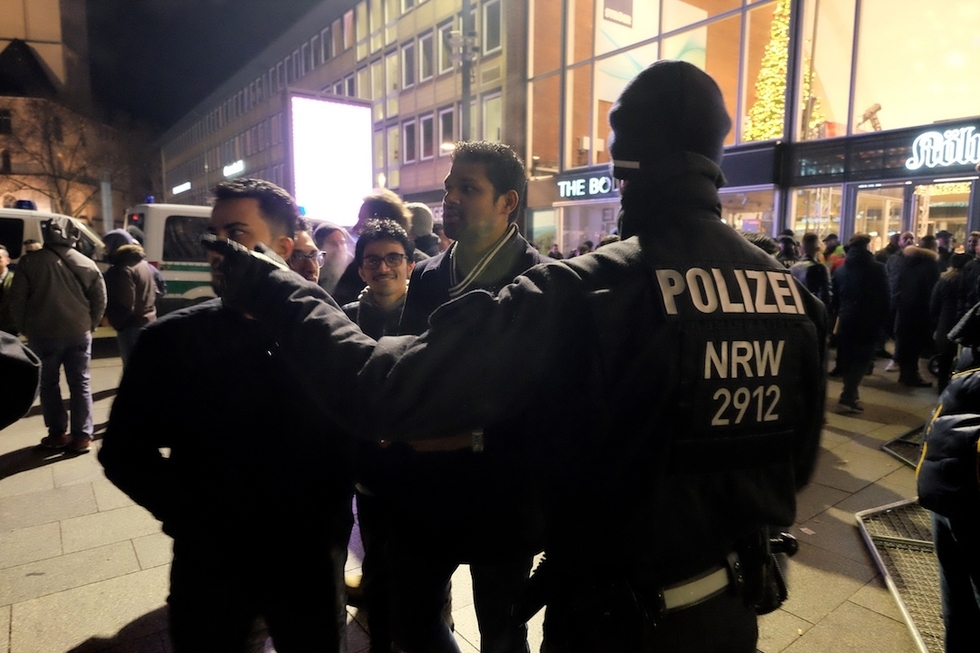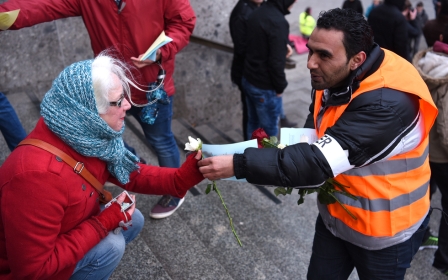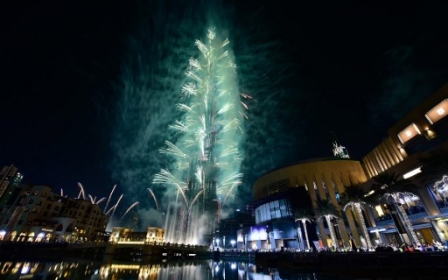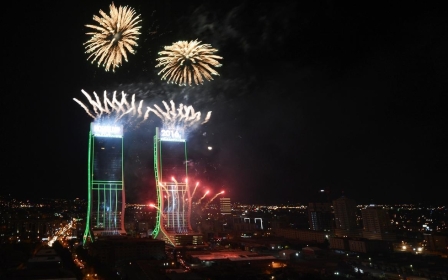Cologne police accused of racial profiling for New Year celebrations

Police in the German city of Cologne said Sunday a heavy security presence on New Year's Eve prevented a repeat of last year's mass sexual assaults, while denying accusations of racial profiling.
More than 2,000 police were deployed, over 10 times last year's number, in the western city where a year ago hundreds of women were assaulted and robbed, mostly by men described as of Arab and North African origin.
This year police at the flashpoint central railway station and on trains targeted large groups of men of North African origin, checked the identity papers of over 900 people, and ordered many of them to leave the area, police said.
The focus on people from North African countries sparked protests on social media, as did an overnight police tweet that said checks were ongoing of hundreds of "Nafris" - police jargon for North Africans.
News site Spiegel Online, in an article headlined "What is a 'Nafri' please?" - quoted a police spokesman as saying the term was used in an effort to keep the Twitter message short.
Green party co-chair Simone Peter questioned the legality of police tactics.
"It raises the question of proportionality and legality when around 1,000 people were checked and partially detained based on their appearance alone," Peter told the Rheinischen Post, though she also said that the heightened security had probably prevented further attacks.
READ: What the Cologne attacks tell us about Europe
City police chief Juergen Mathies denied social media criticism of "racial profiling," arguing that many of those who were checked had acted in an "aggressive" manner.
"I reject such criticism," he told reporters. "The clear aim ... was to prevent similar events to those of last year."
He said of the 650 people who were subjected to identity checks, almost all were from North African countries
"Their characteristics were such that potential crimes could indeed be expected," he added, according to AP.
At the Cologne railway station square, across from the city's iconic cathedral, authorities also banned fireworks, all bags were checked and new high-definition video cameras provided a live feed to police headquarters.
In the capital Berlin, too, police reported a relatively normal New Year's Eve night as thousands of revellers rang in 2017 at the landmark Brandenburg Gate.
Following a 19 December attack in which a truck ploughed through a Berlin Christmas market and 12 people died, the mass event was shielded by concrete barriers and guarded by police carrying automatic rifles.
New MEE newsletter: Jerusalem Dispatch
Sign up to get the latest insights and analysis on Israel-Palestine, alongside Turkey Unpacked and other MEE newsletters
Middle East Eye delivers independent and unrivalled coverage and analysis of the Middle East, North Africa and beyond. To learn more about republishing this content and the associated fees, please fill out this form. More about MEE can be found here.




